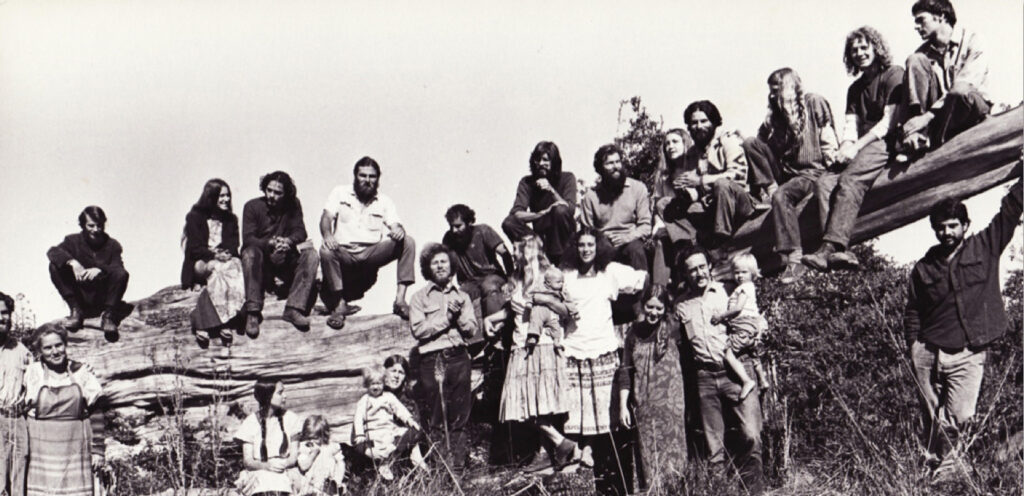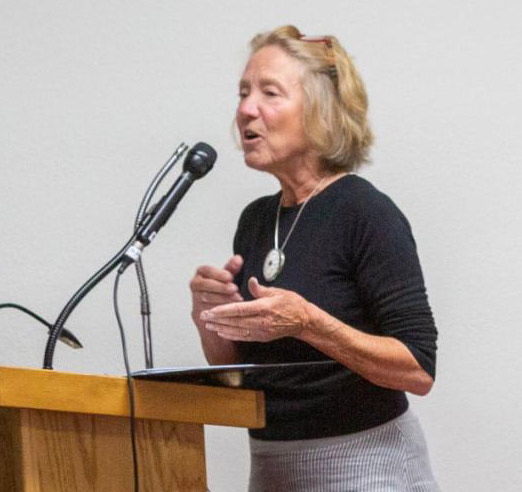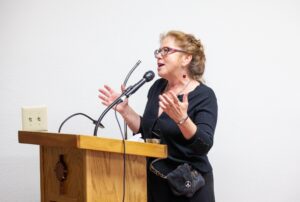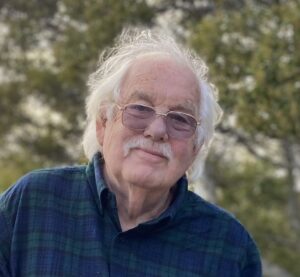Welcome to Promise of Paradise, Back to the Land Oral Histories of Mendocino County. We are working to document an experiment that began roughly fifty years ago all across the country. In the 60’s and 70’s, young people began to “tune in, turn on, and drop out.” Anything was possible. College-educated hippies began to stream away from the cities and into the country, to put a modern twist on ancient homesteading skills. We’ll hear about the sense of exhilaration, the resilience, and how these now aging hippies recall their rush towards freedom and responsibility.
We’ll also hear about how the lack of boundaries led to tragedy and disillusionment; the racial insensitivity; and how the back to the land experiment altered Mendocino County.
Who were these people, why did they come, and what mark did they make on this county’s history?
Promise of Paradise is supported by the National Endowment for the Humanities, California Humanities, the Arts Council of Mendocino County, the Judy Pruden Historical Preservation Fund of the Community Foundation of Mendocino County, the Mendocino Institute, StoryCenter, and Grace Hudson Museum.

LISTEN TO PROMISE OF PARADISE
Episodes 1 – 5
Episode 1
Episode 2
Episode 3
Episode 4
Episode 5
Episodes 6 – 10
Episode 6
Episode 7
Episode 8
Episode 9
Episode 10
Episodes 11 – 15
Episode 11
Episode 12
Episode 13
Episode 14
Episode 15
Episodes 16 – 20
Episode 16
Episode 17
Episode 18
Episode 19
Episode 20
Episodes 21 – 25
Episode 21
Episode 22
Episode 23
Episode 24
Episode 25
Episodes 26 – 30
Episode 26
Episode 27
Episode 28
Episode 29
Episode 30
Episodes 31 – 35
Episode 31
Episode 32
Episode 33
Episode 34
Episode 35
Episodes 36 – 40
Episode 36
Episode 37
Episode 38
Episode 39
Episode 40
Episodes 41 – 44
Episode 41
Episode 42
Episode 43
Episode 44
I came to the North Coast in 1999, drawn to the beauty of its forests and wild coastline. I knew little of its people. It was only a matter of time, however, until I discovered the impact of the back to the land movement of the sixties and seventies on the communities here; indeed, it sometimes seemed that every new acquaintance carried a back to the land experience, more, a mere scratch might reveal a communard.
—Cal Winslow
PROMISE OF PARADISE: DREAM IT FORWARD

October 2, 2019 — The truly final event for Promise of Paradise was at the Grace Hudson Museum in Ukiah on October 2. Over 100 people came out, in the middle of a week that was full of public events commemmorating the second-year anniversary of the Redwood Complex fires. Against this backdrop, the memories of dreams, values, and ideals segued with special resonance into an honest reflection of what facilitator Kirsten Johnsen reminded us is an essential aspect of any journey: an exploration of what went wrong. What were the challenges, where did we fall short, and what did we do when our values were challenged?
In the final part of the journey, we dreamed it forward: what remains to be done, and what are we doing to meet the needs of our community?

Our back to the land panelists, whose stories are archived with the Promise of Paradise project, were J. Holden, Wendy Jackson, Tom Liden, and Sheilah Rogers. Our youth panelists, who offered a fresh perspective about how they think the back to the land movement of their parents’ generation has affected their lives, were Danza Davis and Kyle Farmer.
Promise of Paradise is supported by the National Endowment for the Humanities, California Humanities, the Arts Council of Mendocino County, the Judy Pruden Historical Preservation Fund of the Community Foundation of Mendocino County, the Mendocino Institute, StoryCenter, and Grace Hudson Museum.
RESOURCES

The Albion Nation: Communes on the Mendocino Coast
Cal Winslow | The Brooklyn Rail | April 2012
The Communes Project, as it was first called, began in 2003 as a collaboration between the Institute of International Studies at the University of California, Berkeley and the Mendocino Institute based near Caspar on the coast of northern California. The project focused from its inception on the extraordinary efflorescence of secular communal ventures initiated in the mid to late 1960s and flourished into the 1970s across the Bay Area and its hinterland.
There is of course a long and rich tradition of communitarian living in the New World, and in California in particular. There was no singular point of origin for the remarkable burst of communal energy. These were simultaneous experiments in metropolitan and rural settings across a swath of different environments, and encompassing a variety of ethnic and racial communities. Although the phenomenon was ubiquitous, it is incontestable that the Bay Area provided one of the most generative settings in that a range of communal movements came to fruition – if ‘movements” is a term that can be justified, and we believe it can.
—Iain Boal
Iain Boal, University of Newcastle, May 24, 2011
Iain Boal discussing “West of Eden: Communes and Utopia in Northern California”
